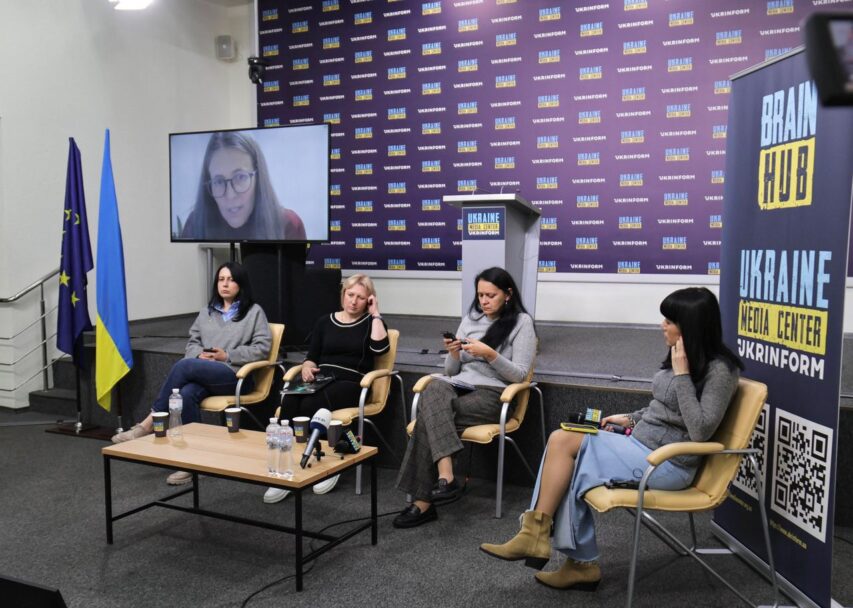
Arbitrary detention of civilian hostages: MIHR presents an analysis of the I-DOC documented Russian crimes
The detention of civilians in the occupied areas of Ukraine has become commonplace since 2014. After the full-scale invasion outbreak, Russia continued to illegally detain civilians in the occupied territories.
To record as many facts about such crimes as possible, and to bring the perpetrators to justice, the Media Initiative for Human Rights (MIHR) conducted the first stage of the investigation, which reveals the pattern of those crimes Russia has committed in the north of Ukraine in Kyiv, Chernihiv and Sumy regions and prepared an analysis based on materials received from detainees released from Russian captivity and the families of those who are currently taken prisoner.
Tetyana Katrychenko, Coordinator of the Media Initiative for Human Rights (MIHR) made this report at the BrainHub the country’s main discussion platform at the Media Center Ukraine – Ukrinform.
She noted that the study managed to talk to more than a hundred different witnesses – families of hostages, former hostages, witnesses of detentions, and witnesses of the organization of detention centers.
All the data obtained is documented in the specialized I-DOC system, which helps to comprehensively prepare a case of international crimes and submit it to the International Criminal Court to bring Russia to justice.
“Our organization, the Media Initiative for Human Rights, is a member of the Ukraine 5 AM Coalition”, an alliance of 40 organizations, and we all decided to document all the cases and the evidence, through the I-DOC system tools, thus holding a parallel investigation. Now we have prepared preliminary analytics based on witnesses and victim interviews. We have identified two or three large detention facilities in each of the three regions where civilian hostages were transferred, and we have analyzed the conditions of detention in these places, and, unfortunately, the torture was bound to happen. Now we are trying to expand this geography, add new places of detention, given that they exist, and also trace the routes of transportation to Russia’s territory through the territory of Belarus, as well as detention sites throughout Russia, to eventually name those responsible for this system-wide crime, which constitutes a war crime, in fact, a crime against humanity, which has prospects for investigation,” explained Tetyana Katrychenko.
In her turn, Lene Lene Wetteland, Head of the Norwegian Helsinki Committee Documentation and Accountability Hub, explained how documenting crimes in the I-DOC system will help to further send the facts of Russian crimes to international bodies for investigation and punishment of the perpetrators.
“We have different ways to work on the situation using I-DOC capabilities, it’s connected with international law very accurately, and we understand how to build a case under established norms. There is a good example of the progress we’ve made after the war in the North Caucasus in 2010, and I-DOC information was used for sanctions cases, for compiling sanctions lists of different countries, and for winning the European Court of Human Rights cases. Of course, we don’t trust national courts in Russia, but we cooperate with the Office of the Prosecutor General in Ukraine, they have access to this database as well, and we can use this information to document different cases, creating entire cases based on witness testimony, and submit these cases for investigation in international courts, so we have access from different agencies,” she added.
BrainHub is the country’s main discussion platform created by the Media Center Ukraine – Ukrinform. It brings together experts from the state and civil society sectors. BrainHub hosts intellectual discussions around the issues of the post-war reconstruction of Ukraine. It’s the birthplace of the best ideas that will become the foundation for the road map of Ukraine’s reconstruction in all sectors: economy, infrastructure, education, agriculture, security, digital, etc.
Read more: https://mediacenter.org.ua/news
 Back
Back 